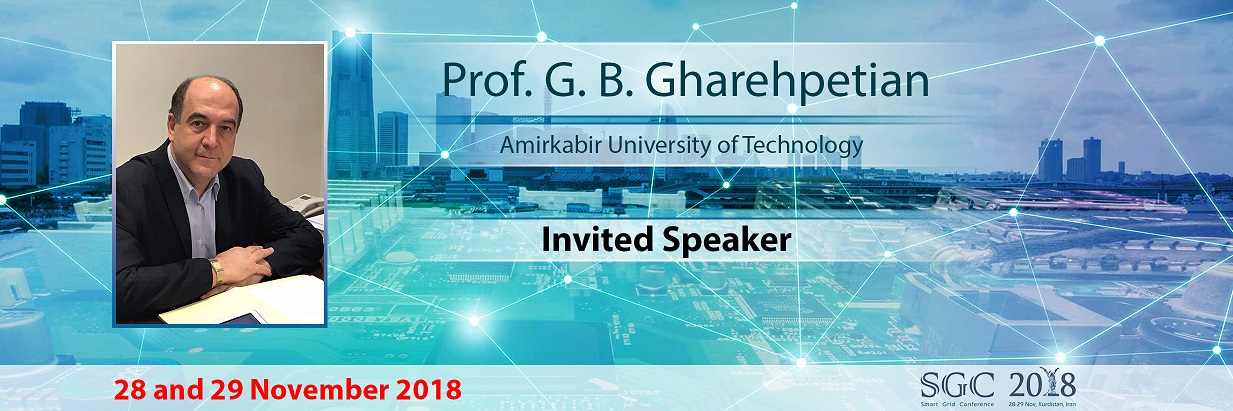
Dr. Mostafa Rajabi Mashhadi is Deputy Managing Director of National Grid Dispatching and member of the board of Iran Grid Management Company (IGMC).
Mr. Rajabi started his career as a power plant control system specialist in 1994. He joined the Khorasan Regional Electric Company (KREC) in 2004, as power market office manager. After three years, he was assigned as North-East of Iran dispatching center manager and then in 2007 he was promoted as KREC deputy director manager for planning and research. In the meantime, he joined Sadjad University of technology as a faculty member from 2011 up to now.
Dr. Rajabi is has extensive experience in several fields related to power system operation, control and planning. Both a scientific researcher and an active industry manager, he is well acquainted with the electrical power industry and power system stability, frequency control, demand response, smart grids and sustainable energy.
Dr. Rajabi has authored five books. He has published over one hundred twenty research papers in national and international journals and conferences. He is also the recipient of 7 best paper awards for his publication.
He has been elected to the grade of IEEE Senior Member in 2016. He is currently the principal member of IAEEE.
Title: New Requirements for Dispatching Centers in Iran
Abstract: The design of Dispatching Centers in Iran has often been more than two decades old and Lacks the capabilities needed to meet current and future requirements. Some of the following new requirements of control centers can be mentioned:
-
Increase the accuracy of short-term load forecast due to the uncertainties of load management plans and climate change.
-
The presence of renewable power plants and the need to predict the power of wind and solar power plants.
-
Correction in market procedures and power exchange and their necessity in the security constraint unit commitment (SCUC).
-
The need for short-term and medium-term planning to prevent the congestion of transmission Due to load changes in the downstream network and regional sub- transmission constraints.
-
Realistic Reserve Monitoring in power shortage conditions.
-
Planning the use of Demand response to balance production and consumption in the normal condition and frequency control in emergency condition.
-
Operation against the complex conditions of the grid and emerging phenomena.
-
Preparing for cyber and physical threats and terrorist attacks.
-
Operation in fuel shortage.
To meet the above requirements, it is necessary to use new tools and technologies as well as new planning methods.
In this speech, while outlining new topics and requirements, we will review native solutions to these challenges.

Prof. G. B. Gharehpetian received his BS, MS and Ph.D. degrees in electrical engineering in 1987, 1989 and 1996 from Tabriz University, Tabriz, Iran and Amirkabir University of Technology (AUT), Tehran, Iran and Tehran University, Tehran, Iran, respectively, graduating all with First Class Honors. As a Ph.D. student, he has received scholarship from DAAD (German Academic Exchange Service) from 1993 to 1996 and he was with High Voltage Institute of RWTH Aachen, Aachen, Germany.
He has been holding the Assistant Professor position at AUT from 1997 to 2003, the position of Associate Professor from 2004 to 2007 and has been Professor since 2007. The power engineering group of AUT has been selected as a Center of Excellence on Power Systems in Iran since 2001. He is a member of this center.
He was selected by the ministry of higher education as the distinguished professor of Iran, by IAEEE (Iranian Association of Electrical and Electronics Engineers) as the distinguished researcher of Iran and by Iran Energy Association (IEA) as the best researcher of Iran in the field of energy, and was awarded the National Prize in 2008, 2010 and 2018, respectively. Based on the Web of Science database (2005-2015), he is among world’s top 1% elite scientists according to ESI (Essential Science Indicators) ranking system.
Prof. Gharehpetian is distinguished, senior and distinguished member of CIGRE, IEEE and IAEEE, respectively. Since 2004, he has been the Editor-in-Chief of the Journal of IAEEE.
He is the author of more than 1000 journal and conference papers. His teaching and research interest include Smart Grid, Microgrids, FACTS and HVDC Systems, Monitoring of Power Transformers and its Transients.